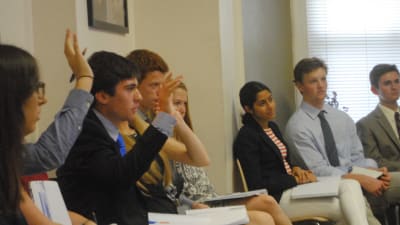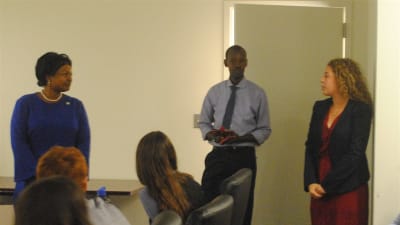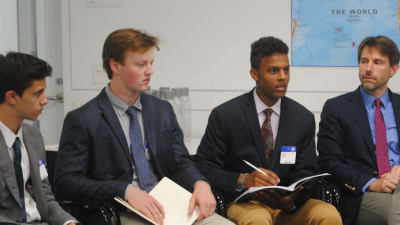Summer 2017 confronts 1994 Rwandan genocide
The 2004 PBS Frontline documentary Ghosts of Rwanda is an SEGL rite-of-passage. Since our first term, the powerful film has captivated, alarmed, and inspired our students. What is the ethical response to mass atrocity? Should American leaders prioritize American interests at all times, or is it worth risking American lives to help stave off widespread havoc? How do we prevent these events from ever occurring? Ghosts, and our next case study of the semester, poses these questions.We began by watching the documentary in our West dormitory common room. The discussion that followed was challenging, with a few tears, but also forward-looking. It continued in dorm rooms long into the night.
Several of the leaders featured in the documentary are longtime SEGL guest speakers, and we met with two of them this summer.
Carl Wilkens is a former Adventist missionary who was the head of his church’s relief mission in Rwanda during the genocide. He was the only American to stay behind in 1994, and is most well-known for (among other acts) saving an entire orphanage from Interahamwe machetes. To SEGL graduates, he is a winner of our coveted “Golden Mug” award, which our graduates give to the speaker who has made the biggest difference in their lives. (Carl is also an honorary SEGL teacher; twice he has co-led a group of our students to Rwanda. To learn more about our 2015 trip–we will almost certainly return–visit our SEGL in Rwanda page!)
Wilkens often videoconferences with students from the road, but this summer he was with us in person. He is the founder of World Outside My Shoes, a genocide prevention NGO that travels the country speaking to schools, universities, and others. The students asked him a wide range of questions–some personal, some political–and listened intently as he carefully and thoroughly addressed each one. He also joined us for dinner later that night, engaging the students in a compelling conversation that went well into the night.
We then traveled to the Rwandan Embassy and met with two lead officials there who shared information about Rwanda’s reconciliation attempts, the nation’s current challenges, and the officials’ personal stories. We also had the honor of meeting Rwandan Ambassador Mathilde Mukantabana, who shared her thoughts at the end of our visit.
Later in the summer, we trekked to the United States Institute of Peace to hear from Ambassador George Moose and the USIP staff, which introduced the Institute to students. Moose was Assistant Secretary of State for African Affairs during the genocide. Moose helped students appreciate the bureaucratic decision making hurdles that stymied attempts to intervene. More important, he helped students see the legitimate reasons governments do not want to intervene in such conflicts.
Studying Rwanda is sobering, and it is also hopeful: in many ways, this makes it the ideal SEGL case study.



























